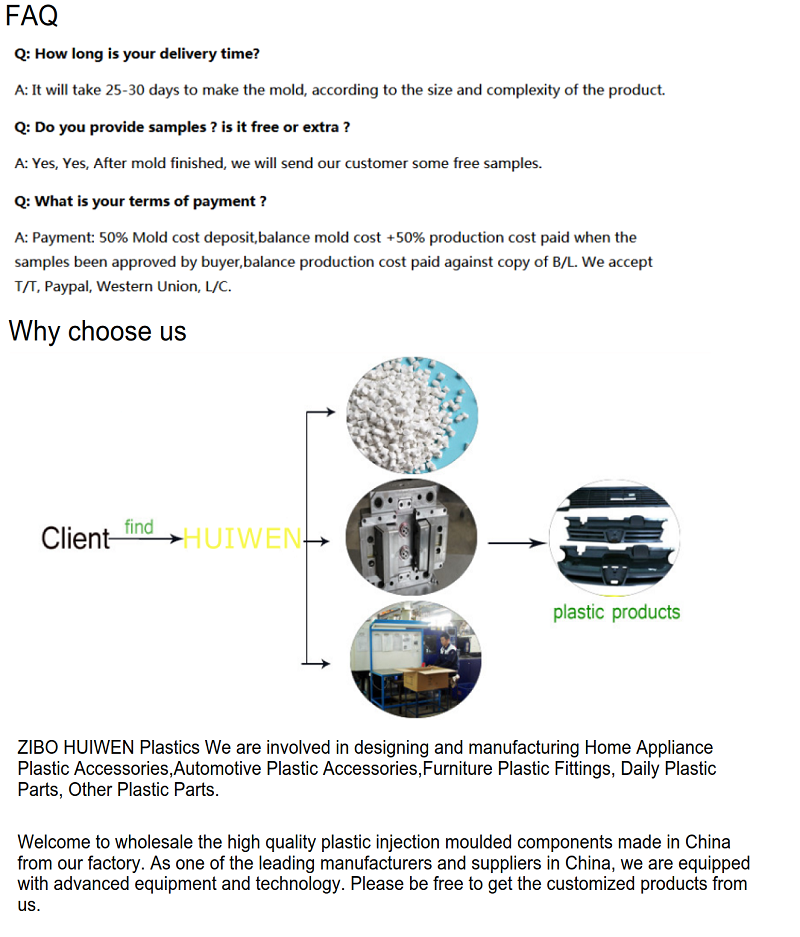Peek
Plastic injection molded parts are created to fit the demanding requirements of industrial machines in which high performance, chemical resistance, and temperature endurance are needed. Among such specialized components, the Peek Impeller is one of the most important components in many mechanical systems, particularly pumps, compressors, and fluid handling equipment. Made through advanced plastic injection molding technologies, the components have high accuracy, reproducibility, and reliability, rendering them adequate for use in abrasive environments.
The key features of Peek Plastic Injection Molded Parts include their high strength-to-weight ratio, excellent wear resistance, and dimensional stability at very low temperatures. The Peek Impeller, for high-efficiency fluid flow, is known for its smooth surface finish, friction coefficient of low value, and compatibility with an extensive range of chemicals and fluids. All of these features make it a top choice for aerospace, automotive, medical, and chemical processing uses.
When considering Peek Impeller
Plastic injection molding parts, the process through which they are made has to be considered. This process allows for the production of complex geometries with tight tolerances, therefore ensuring each piece is produced in accordance with detailed specifications. Materials that are selected for producing these parts include those capable of sustaining high temperatures, resisting thermal degradation as well as solvent exposure degradation, and those that maintain structural integrity over a long term. Also, the design of the impeller is feasible to be tailored for specific operating specifications, being flexible and versatile in a broad variety of applications.
Industrial Plastic Injection Molding Components, like the Peek Impeller, are used widely in environments where metal components may not perform at an ideal level. Lightweight, energy use is minimized, with parts' corrosion-resistant material prolonging life and reducing maintenance costs. These advantages position them as the cost-effective alternative to metal equivalents, particularly for use where weight reduction and long-term reliability are critical.
Peek Impeller manufacture is an exact process to ensure performance and quality. From manufacturing to mold design and materials selection, the process is tightly regulated to produce parts that meet industry standards. Advanced technology such as computer-aided design (CAD) and finite element analysis (FEA) are often utilized to optimize the performance of the impeller prior to mass production. This ensures that the final product not only functions but is also efficient and dependable.
For the application of using Peek Plastic Injection Molded Parts, the application varies across many industries. They are used in medicine to be used in diagnostic tools and surgical tools, where sterility and accuracy are the most important factors. In the automotive industry, they provide for better cooling systems as well as fuel delivery systems. In the chemical industry, their chemical resistance properties enable them to be used in corrosive liquid-handling pumps and valves.
Operators that have integrated Peek Impeller Plastic
injection molding parts into their equipment generally refer to the benefits of higher efficiency, reduced downtime, and improved system performance. The majority say that converting to Peek-based parts from more conventional materials has led to significant improvements in both performance and bottom line results. Being able to customize the design of the impeller further makes it appealing, allowing manufacturers to customize the product to the needs of a specific application.
Part of the selection process in opting for Peek Impeller Plastic Injection Molding Parts is ensuring they are manufactured at the highest quality levels. Good suppliers maintain tight quality control processes during production, including material inspections, size testing, and operational testing. With such emphasis on quality, every shipment of parts meets specifications and performs predictably under field conditions.
The second aspect is the impact on the environment regarding the utilization of such materials. Peek is greatly sustainable since it can be recycled and reprocessed without weakening its form. This makes it the environmentally friendly choice when organizations seek to reduce their carbon footprint yet maintain high performance levels. The long lifespan of the parts is a sign that there is minimal need for replacement, hence further reducing wastage and saving resources.
For others who may not be aware of what Peek Impeller Manufacturing is, then one needs to take into account that manufacture requires deep insight into material science, production know-how, and engineering concepts. Highly skilled individuals work together hand-in-hand with clients to develop customized solutions that cater specifically to their operation goals. The practice of close collaboration ensures that not only does the final product satisfy technical requirements, but it also gives long-term performance and worth.
As the demand for long-lasting, high-performance, and flexible components continues to increase, the use of Peek Plastic Injection Molded Parts grows more crucial. Whether used in industrial machinery, medical devices, or automotive systems, the parts offer a combination of efficacy, reliability, and strength that is hard to surpass. The Peek Impeller, for instance, is one example of the use of today's injection molding technology to deliver precision-engineered parts better able to meet the evolving needs of today's industries.
In summary, Peek Plastic Injection Molded Parts, and specifically the Peek Impeller, are an elite solution for most industrial purposes. Their unique characteristics, together with advanced production techniques, render them an irreplaceable component in every system requiring safe and efficient fluid transport. As the globe moves forward, the functionality of these parts will further grow, driven by the necessities of innovation, efficiency, and sustainability.











